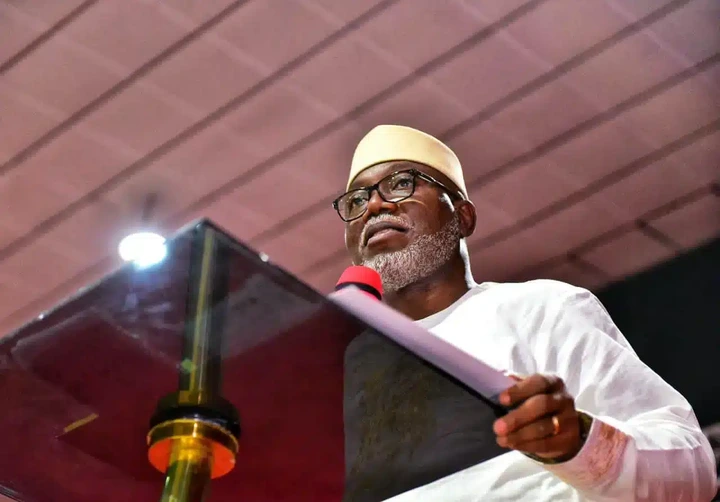Quickly! Watch The Video Before It’s Deleted! |Save Hot 3:00 Minutes $3x V!de0s To Ur Phone Directly | Watch 2:00 H0t $3x V!d0es Now!
Quickly! Watch Before It’s Deleted! Another Popular Nigeria Pastors Wife $leeps With Male Church Member, Husband Engaged In Physical Compact Him. Watch The Full Video Here Now.
Gen-Zs are on rampage. Citizens across the globe are getting angrier. Apparently, economic hardships and youth unemployment are mobilizing and uniting hot-headed youths in far-flung places. Indeed, the ruling class cannot always have their way due to the perception of Gen-Zs that their welfare and well-being are being disparaged with obnoxious policies.
In about a fortnight ago, the anti-government protests in Jakarta, Indonesia’s capital city, led by students’ groups, achieved a momentous volte-face from an indignant government. The youngsters took their destinies into their hands as they could not stomach the jacking up of monthly housing allowance to 50 million rupiah ($3,075) for each of the 580 Members of House of Representatives, which apart from their salaries, is almost 10 times the minimum wage in Jakarta. It showed lack of empathy for ordinary citizens yoked by tax burdens, high cost of living, and youth unemployment.
However, the salvo that sparked off pen-up frustrations was the reported killing of one Affan Kurniawan, a 21-year-old rider, by the security forces, as he was returning from food delivery and was caught up in the ensuing melee. Emotions ran wild and consequently, a parliament building in Makassar within Sulawesi Island was torched. To douse tension, the jumbo package was instantly reversed. But the students’ leaders still insisted that the anger on the streets would not evaporate if the deep-rooted problems of “political oligarchy and an unequal economic structure” are not addressed.
As the dust of the violent protests in Indonesia began to settle, another round of deadly protests, which Times of India described as Gen-Z revolution, erupted in Nepal, a landlocked country in South Asia. Like peace of the graveyard, youth unemployment in the country which reportedly hovers around 20 percent of the over 29 million population, had remained a time bomb. Bottled-up anger had been rife and brewing on the streets. The tinder box that however let loose a heavy flak of mass anger was the September 4 ban of 26 social media platforms that included Facebook, WhatsApp, Instagram, YouTube, WeChat, and LinkedIn, for failing to meet government’s new registration deadline. Generally, the outright ban was an obvious setback for the country’s promising tourism sector, but specifically, the almost two million Nepalis who live and work abroad and make use of the apps to seamlessly reach their families and friends, were cut off. Hence, “the move was seen by young Nepalis as an attempt to silence dissent.”
That singular sledgehammer of state power had immediate implications. Security forces breached rules of engagement in an attempt to disperse surging crowds. 19 persons were killed. Highways were blocked. The administrative hub of Nepal known as Singha Durbar Complex built in 1908 was destroyed. The parliament and Supreme Court buildings, as well as the official residences of four former prime ministers and the residence of then incumbent prime minster – KP Sharma Oli, were also set ablaze. Police stations were not spared. Tribhuvan International Airport in Kathmandu was cordoned off with flights cancelled. Kantipur Media Group – Nepal’s largest media house, was burnt. Oli, the prime minister resigned under pressure. Even when the social media ban was rescinded and lifted, the protests degenerated into gangsterism and curfews were brazenly flouted.
Though the key Gen-Z organizers of the anticipated peaceful protests in Nepal were later displeased with the attendant criminalities, unfortunately, breakdown of law and order, in most cases, appears to be the most potent way of getting those in government to come down from their high horses of impunity and taking of the people for a ride. Pitiably, Nigeria, once described by a survey as the home of happiest people on earth, has, over the years, witnessed more governance deficit, official deceit, democratic autocracy, and provocative test of wills than Indonesia and Nepal. But an article published by The Guardian of United Kingdom in January 2011 attempts to explain the cause of Nigeria’s docility. “There’s a spirit of entrepreneurship – people seem bewildered if you admit a lack of ambition. Nigerians want to go places and believe – rightly or wrongly – that they can. That drive and ambition fuels their optimism; they’re working towards happiness, so they are happy.”
Beyond the foregoing, why it may sound absurd, according to Sule Lamido’s statement that Nigerians are so overburdened by poverty that they cannot organize and extricate themselves from the apron strings of the elite, the deeper problem lies with the uncritical thinking pattern of most young people in the country. The contrast is evident from two scenarios that took place last Saturday. While estimates indicate that between 110,000 and 150,000 youths were part of the protest in Central London for stricter immigration (it doesn’t matter your ideological divide), about 20,000 youths gathered in Lagos to cheer up and perhaps, partake in the eating of the world’s largest dish of jollof rice, which the culinary star, Hilda Baci had planned to cook. The point is not to condemn the open solidarity to the Guinness World Record holder but to glean out the motivations of both group of youths. Ours are more inclined to entertainment, short-sighted fun-seeking, and political utopias. On the other hand, those who protested on Saturday were more futuristic and had a full grasp of what it takes to push an agenda to the political space.
The truth is that change may not occur in Nigeria until young people start asking the right questions. Why are our federal legislators allegedly the highest paid in the world? How do we curb the 90 percent of corruption perpetrated through public procurement? Why are LG allocations not impacting rural areas even after the Supreme Court ruling? Why is the increased monthly allocation not used to support agriculture and SMEs-the engine of the economy? Why are most children of public officers studying abroad? While it may not take a particular form and shape, what happened in Nepal may be a child’s play if Nigeria’s political class get more carefree with primitive accumulation of wealth at the expense of the citizenry. Suffering may become their unifier.
Quickly! Watch The Video Before It’s Deleted! |Save Hot 3:00 Minutes $3x V!de0s To Ur Phone Directly | Watch 2:00 H0t $3x V!d0es Now!
Quickly! Watch Before It’s Deleted! Another Popular Nigeria Pastors Wife $leeps With Male Church Member, Husband Engaged In Physical Compact Him. Watch The Full Video Here Now.


 Entertainment4 months ago
Entertainment4 months ago
 Politics4 months ago
Politics4 months ago
 Breaking News6 months ago
Breaking News6 months ago
 Breaking News5 months ago
Breaking News5 months ago
 Breaking News5 months ago
Breaking News5 months ago
 Breaking News6 months ago
Breaking News6 months ago
 Breaking News6 months ago
Breaking News6 months ago
 Breaking News5 months ago
Breaking News5 months ago

